Marijuana Can Help Fight Back Against Opioid Abuse, Here’s How
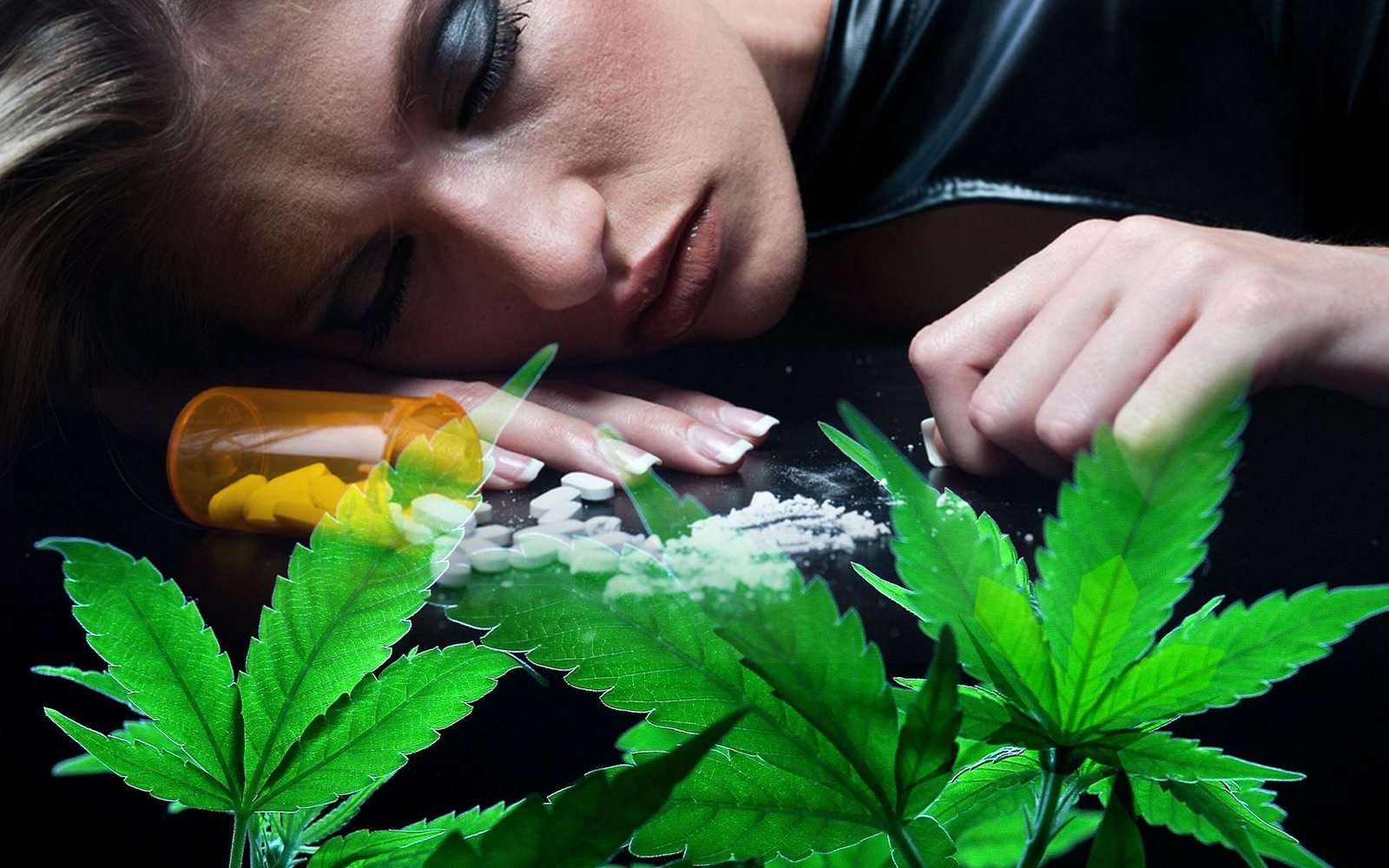
In America, we have a love-hate relationship with opioids. We love their painkilling properties but hate the terrible addiction they cause. Oh yes, we’re also not too fond of their propensity to kill people. While marijuana is legal on a federal level, it is pretty easy to get your hands on pills capable of destroying your life, or even ending it.
At present, there are almost 100 opioid-related deaths per day, and according to research from STAT, this figure could swell to 250 a day by 2027. In the next decade, we could be looking at 650,000 opioid-related deaths if the existing waits for treatment continue to lengthen and if deadly drugs such as carfentanil and fentanyl spread. To put things in perspective, opioids will soon kill more people than guns!
Idiotic Theories Are Not Helping
When it comes to the almighty dollar in the United States, things capable of stopping the gravy train, such as enormous amounts of fatalities, are brushed under the carpet. Out come the ridiculous excuses designed to steer people away from the truth. We see it with the gun debate all the time. After a mass shooting, NRA-owned politicians offer meaningless thoughts and prayers and suggest that TV or the Internet are to blame and not the insane number of automatic guns available in America.
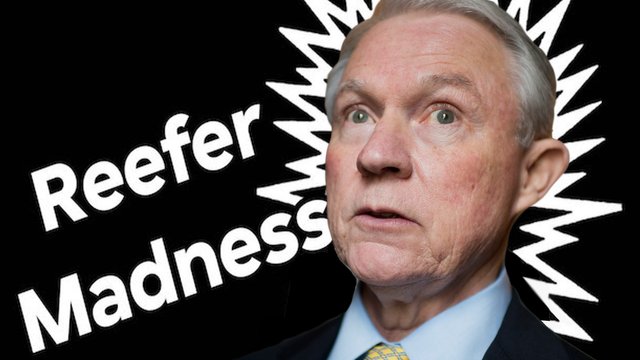
When it comes to opioids, the same mealy-mouthed excuses come to the fore. According to the Attorney General, Jeff Sessions, marijuana is to blame for the opioid crisis. He claimed the DEA said that up to 80% of heroin addicts began with prescriptions and included weed in his list of things to blame. Sessions also rehashed the cliched ‘gateway’ drug theory with no evidence.
In fact, research shows that marijuana is an effective painkiller and far less likely to lead to addiction than opioids. Sessions is right about one thing: Prescriptions ARE increasingly responsible for addictive behavior but it is opioids and NOT cannabis that is at fault. Back in 2002, the Drug Policy Research Center all but debunked the ‘marijuana is a gateway drug’ theory. According to the DPRC: “it is not marijuana use but individuals’ opportunities and unique propensities to use drugs that determine their risk of initiating hard drugs.”
When it comes to treating chronic pain, marijuana is a much better option than opioids and science is finally starting to prove it.
Sorry, Jeff, Big Pharma Caused the Opioid Epidemic
If America didn’t have such a problem with pain, we wouldn’t need opioids in the first place. Alas, up to 100 million adults in the United States reported chronic pain while even more suffered from ‘acute’ pain according to a 2011 Institute of Medicine report. The problem is, there were already a huge number of painkillers to choose from, and physicians prescribed them like candy.
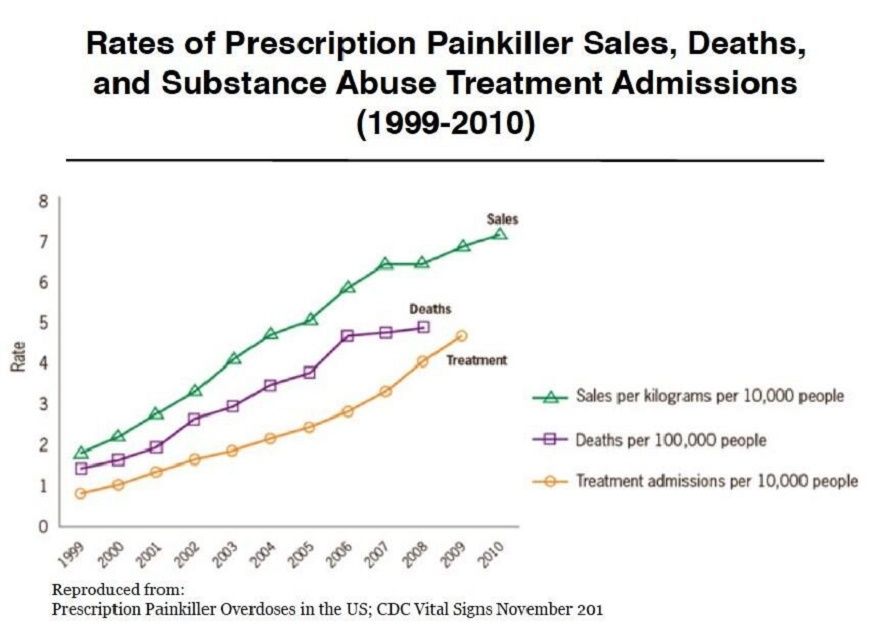
Opioid prescriptions soared from the 1990s onward, and by 2012, health care providers in America were writing 259 million painkiller prescriptions per year; enough for every U.S. adult! Alabama was the worst afflicted with 143 prescriptions per 100 residents. While it is easy to point the finger at doctors, they were misled by Big Pharma. For example, Purdue Pharma, creator of OxyContin, paid $634.5 million in fines for lying about the drug’s potential for abuse.
Marijuana Has Immense Potential as a Painkiller & Opioid Destroyer
In January 2017, the National Academies of Sciences, Engineering, and Medicine released a review of over 10,000 studies on marijuana which came to almost 100 conclusions. It is important to note that the research looked at cannabinoids in general, and not just marijuana. The committee found evidence that supported cannabinoids as an effective treatment for adults with chronic pain. This conclusion is no surprise since hundreds of studies have shown the efficacy of Mary Jane when treating chronic pain.
What’s really exciting is cannabis’ potential ability to help opioid addicts wean off their harmful medication. According to Jeff Chen, who is part of the Cannabis Research Initiative at UCLA, cannabis can address chronic pain in opioid users. Chen says that opioid addicts have a large amount of neurological inflammation which is possibly a contributory factor in addiction. He also said that in preliminary studies, cannabinoids reduced neurological inflammation which means weed could directly address the inflammation in the brain responsible for opioid dependency.
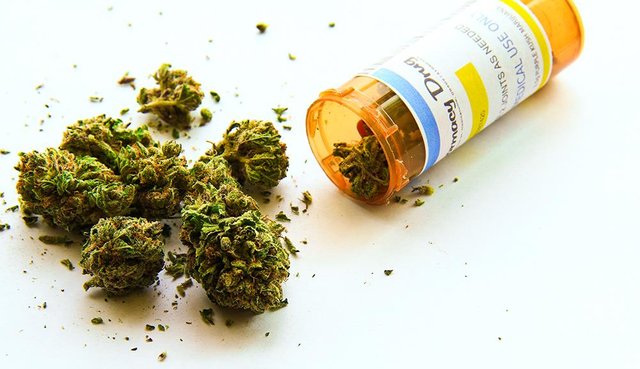
A recent University of Mexico study discovered an exciting connection between medical marijuana and a reduction in opioid abuse. Over a 21-month observation period, a small group of volunteers showed a 47% reduction in daily opioid use in those who enrolled in the New Mexico Medical Cannabis Program (MCP) compared to those who didn’t. The study also found that those who enrolled in the MCP were five times more likely to reduce their daily opioid intake.
Another study, authored by Yuyan Shi of the University of California in San Diego, analyzed opioid use in states where cannabis is legalized for medical use. The report expected an influx of weed smokers, but it didn’t come to pass. However, the hospitalization rate for opioid abuse and dependence fell 23% in these states. This followed on from a 2014 study by Dr. Marcus Bachhuber which found that opioid deaths fell 25% in states where marijuana was legal.
The Evidence is Clear – Surely Marijuana MUST Be Legalized Everywhere?
If only it were that straightforward. The single biggest obstacle to more detailed cannabis research is its continued Schedule I status. Dr. Adie Poe outlined the problems faced by physicians who believe weed is better than opioids for pain. Remember, a doctor can only recommend medical marijuana after a consultation; they are not allowed prescribe it. If they do, they will lose their DEA license for being involved in a patient’s consumption of a federally illegal substance.
Scientists don’t receive government funding for studies, and the FDA needs randomized, double-blind studies on humans to give any medication the go-ahead. Weed’s Schedule I status means it is impossible in America at present. The National Institute for Health (NIH) won’t fund cannabis research either. As Poe says, it is a Catch 22 situation because we need more data to get marijuana removed from federally illegal status, but you can’t get the data because it is federally illegal!
Money Talks
As much as we would like to believe that the comments of Sessions and others are the product of ignorance, there is a far more sinister motive. To be clear, some politicians believe marijuana is the solution to the opioid epidemic. In September 2017, Orrin Hatch, the Republican Senator from Utah, and a bipartisan group of senators introduced the Meds Act, a bill that would ensure marijuana is more easily available to researchers. However, this legislation, and others like it, face severe opposition and will almost certainly be shot down if it ever makes it to a vote.
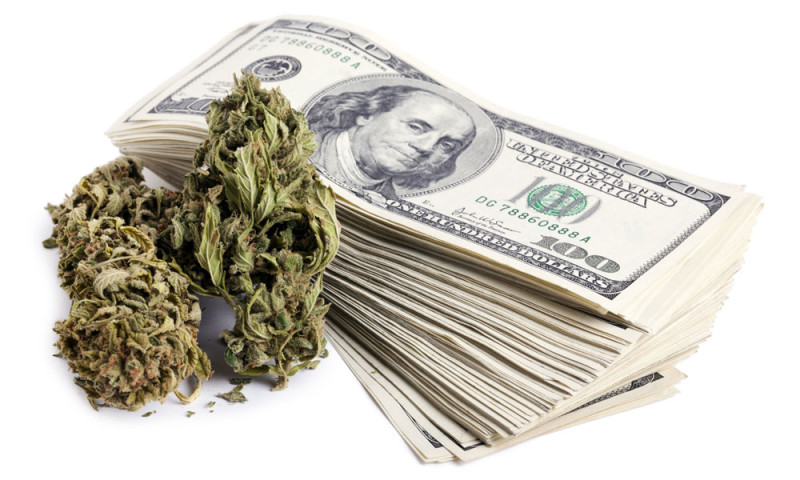
Big Pharma knows that marijuana is here to stay and is aware of its medicinal properties. These organizations know that if weed ever became legal on a federal level, they would lose hundreds of millions of dollars due to falling drug sales. This is why Insys Therapeutics donated $500,000 to prevent marijuana from becoming legal for medicinal use in Arizona. It was a success because the proposition was voted down.
Did Insys donate the money out of concern for the citizens of Arizona? Hardly! After all, its big seller is an opioid spray made from fentanyl which is up to 50 times stronger than heroin and more addictive. Overall, Big Pharma spent almost $900 million on political donations and lobbying against marijuana between 2006 and 2015. As infamous as the NRA is for lobbying, the gun-loving group spent just one-fifth of that amount during the same timeframe.
Pills Versus Pot
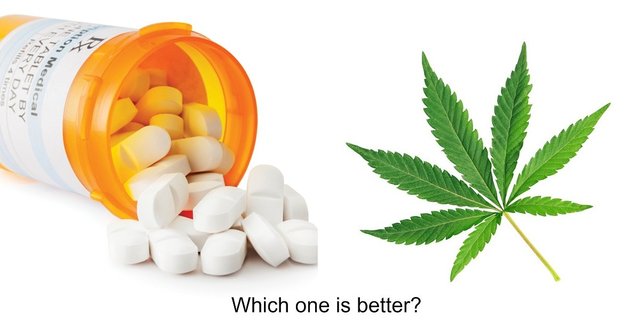
The weight of evidence is clearly in favor of marijuana as a painkiller, and it is also potentially a means of helping opioid addicts recover before it is too late. Current research suggests that weed is capable of saving 1-in-4 opioid addicts which is an extraordinary number.
If you extrapolate this data across the United States, marijuana could potentially save 7,000+ lives a year; yet it is still a Schedule I drug because of Big Pharma’s hunger for profit. Jeff Sessions and his ilk have blood on their hands because the more they fight against legalizing marijuana, the more people will die from opioid addiction and abuse.
SOURCE
https://www.statnews.com/2017/06/27/opioid-deaths-forecast/
https://www.vox.com/policy-and-politics/2018/2/8/16987126/jeff-sessions-opioid-epidemic-marijuana
https://www.nap.edu/catalog/13172/relieving-pain-in-america-a-blueprint-for-transforming-prevention-care
https://www.usatoday.com/story/news/nation/2014/07/01/painkiller-prescription-rates-states/11898327/
https://www.vox.com/2016/1/17/10784428/democratic-debate-sanders-heroin-painkillers
http://www8.nationalacademies.org/onpinews/newsitem.aspx?RecordID=24625
https://medicalxpress.com/news/2017-11-medical-cannabis-effective-opioid-addiction.html
https://www.reuters.com/article/us-health-addiction-medical-marijuana/would-legalizing-medical-marijuana-help-curb-the-opioid-epidemic-idUSKBN16Y2HV
http://www.wweek.com/cannabis/2017/05/09/dr-adie-poe-believes-cannabis-is-americas-best-weapon-in-the-fight-against-opioid-abuse/
http://www.12news.com/article/news/local/marijuana/could-medical-marijuana-help-curb-opioid-abuse/474716123
https://www.rollingstone.com/culture/news/medical-pot-is-our-best-hope-to-fight-the-opioid-epidemic-w513653
This post has received a 1.64 % upvote from @boomerang thanks to: @medicalmarijuana
This post has received a 0.71 % upvote from @booster thanks to: @medicalmarijuana.
I have been saying this for years. Followed
Sessions is a fuckin' moron! When will people stand up to these idiots and yell for proof? Why is it that these talking heads can make the stupidest statements, with no evidence to back them up..... and the people not only believe them- they do not even ask for backup evidence?!?
d
